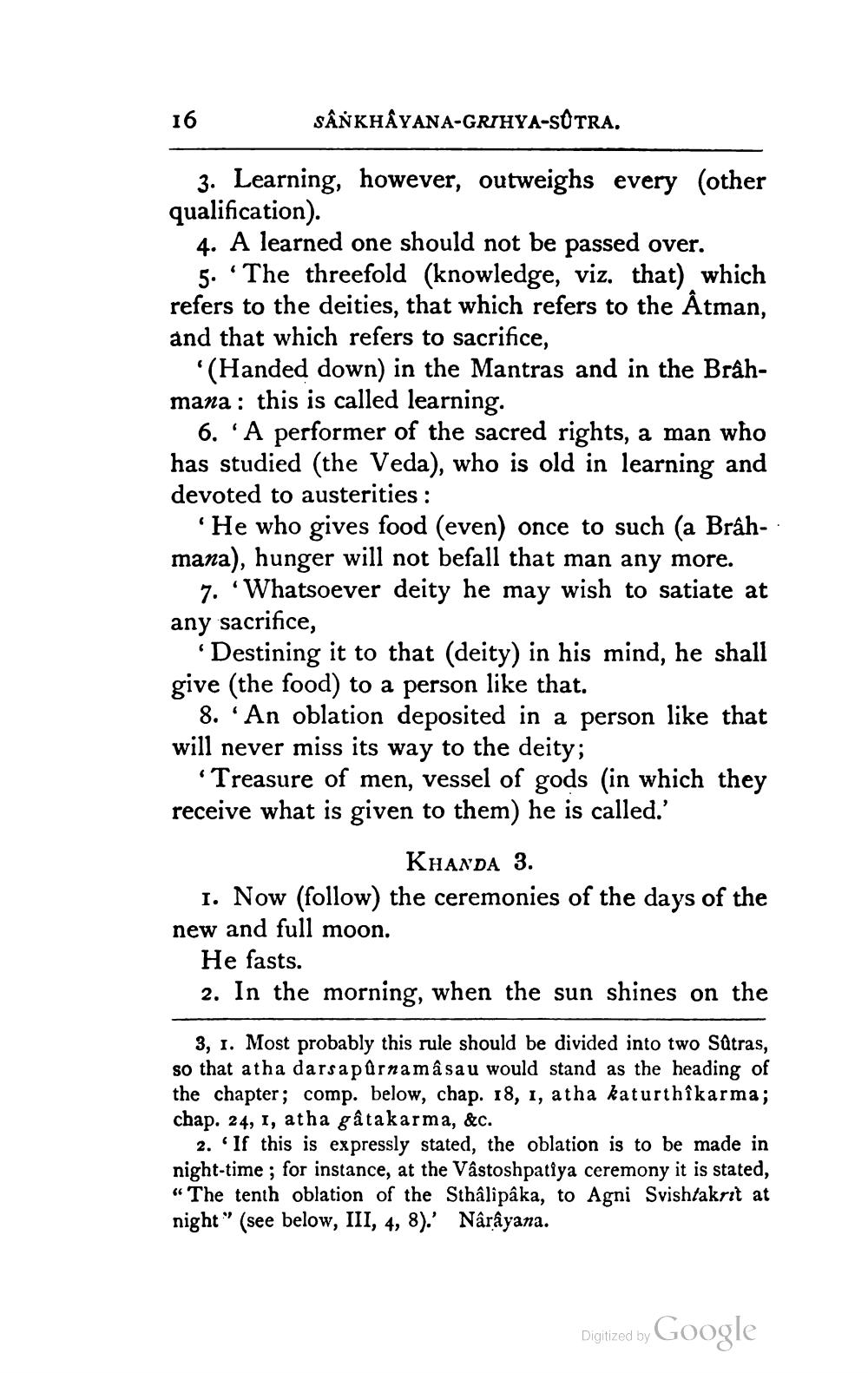________________
16
SANKHAYANA-GRIHYA-SUTRA.
3. Learning, however, outweighs every (other qualification).
4. A learned one should not be passed over.
5. The threefold (knowledge, viz. that) which refers to the deities, that which refers to the Âtman, and that which refers to sacrifice,
'(Handed down) in the Mantras and in the Brâhmana: this is called learning.
"
6. A performer of the sacred rights, a man who has studied (the Veda), who is old in learning and devoted to austerities:
'He who gives food (even) once to such (a Brâhmana), hunger will not befall that man any more.
7. 'Whatsoever deity he may wish to satiate at any sacrifice,
Destining it to that (deity) in his mind, he shall give (the food) to a person like that.
"
8. An oblation deposited in a person like that will never miss its way to the deity;
'Treasure of men, vessel of gods (in which they receive what is given to them) he is called.'
KHANDA 3.
1. Now (follow) the ceremonies of the days of the new and full moon.
He fasts.
2. In the morning, when the sun shines on the
3, 1. Most probably this rule should be divided into two Sutras, so that atha darsapûrnamâsau would stand as the heading of the chapter; comp. below, chap. 18, 1, atha katurthîkarma; chap. 24, 1, atha gâtakarma, &c.
2. If this is expressly stated, the oblation is to be made in night-time; for instance, at the Vâstoshpatiya ceremony it is stated, "The tenth oblation of the Sthâlipâka, to Agni Svishtakrit at night" (see below, III, 4, 8).' Nârâyana.
Digitized by Google




